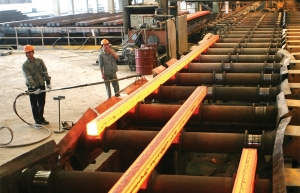The need for efficient carbon market plans
Vietnam has committed to achieving net-zero carbon emissions by 2050 while aspiring to become an advanced middle-level economy by 2045. These goals are challenging as they pull in opposite directions. A well-structured carbon market could help balance these ambitions by incentivising businesses to reduce greenhouse gas (GHG) emissions while fostering sustainable growth.
 |
| Dao Phuong Anh and Tony Foster Freshfields Bruckhaus Deringer LLP |
A functioning carbon market would allow polluters to earn and trade carbon credits by reducing emissions. Non-polluters could also develop carbon-reduction projects to generate credits for sale. These credits could be sold to entities that cannot reduce their emissions sufficiently to meet compliance requirements or voluntary sustainability goals.
By creating financial incentives for businesses to become more carbon-efficient, a carbon market could attract global and local investors to fund sustainable projects, including renewable energy, eco-tourism, and sustainable agriculture.
Although individual carbon trades occur in Vietnam, the country has yet to establish a fully operational carbon market to support its long-term climate and economic strategies. Vietnam has significant potential for nature-based carbon credits, thanks to its abundant forest resources. With over 14.7 million hectares of forest, Vietnam is one of 15 countries participating in the World Bank’s Forest Carbon Partnership Facility, which supports the generation of income from selling carbon credits.
The voluntary carbon market has been active in Vietnam since 2005, when the country began participating in the UN-run Clean Development Mechanism. Businesses can voluntarily purchase credits generated by environmentally friendly projects. Additionally, voluntary projects often secure funding via the UN’s Reducing Emissions from Deforestation and Forest Degradation framework.
The compliance carbon market, based on national commitments under the UN Framework Convention on Climate Change, is still under development. Vietnam outlined a roadmap in 2022, with a trial market set to launch in 2025 and an official market to be established by 2028.
The allocation of GHG emissions quotas will be crucial for the compliance market. By introducing a cap-and-trade system, Vietnam could encourage carbon-intensive sectors to adopt cleaner technologies. Polluters would receive GHG emission quotas and could trade unused certificates if they improve their carbon efficiency.
A 2024 ruling identified six sectors required to conduct GHG inventories for quota allocation, covering over 2,100 facilities across industries such as power generation, transportation, construction, and waste management. Facilities exceeding defined emission thresholds, such as thermal power plants and large-scale waste processors, will need to participate.
Vietnam plans to operate a pilot carbon trading platform starting in 2025. However, several steps must be taken during the pilot phase to ensure the market’s success. The government must define methods for calculating and certifying carbon credits, develop reliable platforms for trading, and establish professional verification processes to ensure credits genuinely reflect GHG reductions.
Affected Vietnamese businesses will need to adapt to mechanisms like the EU’s Carbon Border Adjustment Mechanism, which imposes taxes on products with high carbon footprints. Explicit carbon pricing and broader cap-and-trade systems will be essential to maintain competitiveness among exporters to Europe.
Vietnam’s green finance system currently lacks adequate financial resources to support advanced tech, and the incomplete legal framework for the compliance carbon market exacerbates this challenge. Public awareness of green growth and low-carbon development remains limited, restricting the innovation needed to drive these initiatives.
Vietnam can draw on the experiences of other Asian nations to shape its carbon market. China launched its national carbon trading scheme in 2021, covering over 2,000 companies and 4.5 billion tons of CO2 annually. India has proposed a two-phased carbon market, with a voluntary market under design and a compliance market set for 2026.
Singapore has become a key player in the region with initiatives like the Singapore Carbon Market Alliance, and the International Carbon Credit Framework, which allow companies to offset emissions using high-quality carbon credits.
Vietnam’s ability to adopt similar mechanisms will depend on creating intermediaries to prevent double counting and ensuring robust monitoring systems. Establishing a trustworthy carbon market infrastructure will be essential for success.
Banks will play a critical role. They can provide financing for projects that generate carbon credits, such as renewable energy installations and reforestation initiatives. Banks can also develop and operate trading platforms to facilitate secure transactions and ensure compliance with legal frameworks once established.
By learning from successful models in Asia and leveraging its abundant natural resources, Vietnam can position itself as a leader in the global carbon market. A well-structured market will not only help Vietnam achieve its climate commitments but also entice investment, create jobs, and drive sustainable economic growth.
 | Carbon market pilot around the corner The local authorities are on track to complete a carbon credit market development scheme in Vietnam, which is careful preparation for establishing a pilot carbon trading platform from next year. |
 | Flexible solutions crucial to develop carbon market: Deputy PM With its tremendous potential in renewable energy and the carbon market, Vietnam will be highly attractive to investors, Deputy Prime Minister Tran Hong Ha stressed, while addressing a meeting in Hanoi on August 22 on seeking ideas towards completing a draft plan on carbon market development in Vietnam. |
What the stars mean:
★ Poor ★ ★ Promising ★★★ Good ★★★★ Very good ★★★★★ Exceptional
Related Contents
Latest News
More News
- Citi economists project robust Vietnam economic growth in 2026 (February 14, 2026 | 18:00)
- Sustaining high growth must be balanced in stable manner (February 14, 2026 | 09:00)
- From 5G to 6G: how AI is shaping Vietnam’s path to digital leadership (February 13, 2026 | 10:59)
- Cooperation must align with Vietnam’s long-term ambitions (February 13, 2026 | 09:00)
- Need-to-know aspects ahead of AI law (February 13, 2026 | 08:00)
- Legalities to early operations for Vietnam’s IFC (February 11, 2026 | 12:17)
- Foreign-language trademarks gain traction in Vietnam (February 06, 2026 | 09:26)
- Offshore structuring and the Singapore holding route (February 02, 2026 | 10:39)
- Vietnam enters new development era: Russian scholar (January 25, 2026 | 10:08)
- 14th National Party Congress marks new era, expands Vietnam’s global role: Australian scholar (January 25, 2026 | 09:54)

 Tag:
Tag:



















 Mobile Version
Mobile Version